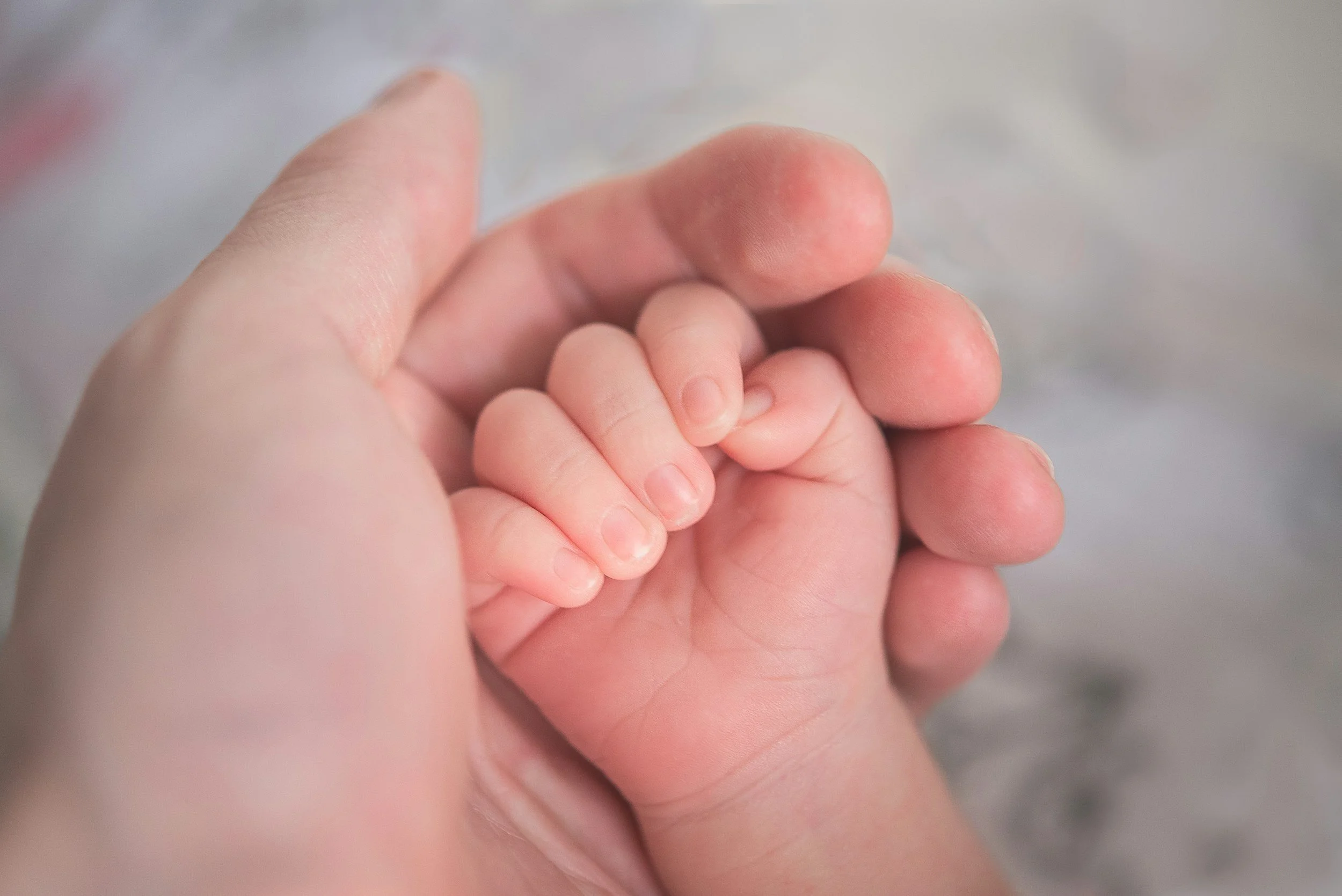Divorcing With a Baby: How to Co-Parent and Provide Stability and Love Amid a Difficult Time
There are few things more heart-wrenching than going through a divorce while caring for a baby. In those early years, your child relies on you for everything—comfort, safety, nurturing—and the thought of disrupting that stability can be overwhelming.
If you’re searching for New York divorce mediation, you may be feeling torn: how do you move forward with the end of your marriage while still protecting the innocence and security of your baby?
The truth is, you don’t have to navigate this alone, and you don’t have to surrender control of your child’s future to a judge who doesn’t know your family. With Haas Mediation, you and your co-parent can sit down in a safe, supportive environment and design parenting arrangements that reflect your baby’s unique needs—while also respecting both of you as parents.
Why Divorce Feels Different With a Baby
Divorce is always difficult, but when a baby is involved, emotions can intensify. Babies thrive on consistency, routine, and nurturing environments. Disruptions to that stability—even small ones—can affect their development.
According to The American Academy of Pediatrics, young children benefit most from predictable schedules, minimized conflict between parents, and consistent caregiving. That means your baby’s well-being depends less on whether you live under the same roof and more on how you and your co-parent handle this transition.
Why Mediation Is Especially Helpful for Parents With Babies
Do you really want a judge deciding your baby’s future?
In litigation, custody decisions are often reduced to time schedules and legal terms, decided by a judge who has met your child—never. That lack of agency can leave parents feeling powerless.
In mediation, the dynamic shifts completely. You and your co-parent:
Remain in control of the decisions that shape your baby’s future.
Work together to create routines that honor your baby’s developmental needs.
Stay out of the courtroom, where conflict often escalates.
Save thousands of dollars compared to litigation, leaving more resources for your child.
At Haas Mediation, I’ve seen parents go from feeling paralyzed with fear to empowered and hopeful—because mediation gives them the space to design solutions that truly fit their family.
How Can Parents Co-Parent a Baby During Divorce?
If you’re divorcing with a baby, the questions swirling in your mind can feel endless. How will routines look in two homes? Will my child still feel safe and bonded to both of us? How do we protect them from stress when we’re barely holding it together ourselves?
These worries are normal—and the good news is that through New York divorce mediation, you and your co-parent have the space to design a plan that works for your baby’s developmental needs and for you as parents. Here are some gentle but practical ideas to get you started:
1. Keep routines sacred
Babies rely heavily on predictable rhythms. Feeding, nap times, and bedtime rituals aren’t just tasks; they’re how infants learn to feel safe in the world. In mediation, you can agree to:
Maintain the same bedtime in both homes.
Use similar comfort items (a favorite blanket, sleep sack, or white noise machine) so the baby feels continuity.
Share notes about what the baby ate, how they slept, or any new milestones to keep both parents in sync.
Even small consistencies, like singing the same lullaby or reading the same story, can help your child feel grounded.
2. Start with short, frequent contact
For very young infants, especially under 18 months, research suggests they do best with shorter, more frequent contact with both parents rather than long separations (Zero to Three). In mediation, you might agree that the non-residential parent has frequent daytime visits, gradually building toward overnights as your baby grows. This keeps bonds strong without overwhelming your child.
3. Build in flexibility for growth
Your baby won’t stay a baby forever. What works at six months won’t necessarily fit at two years old. Mediation allows you to create a plan with “check-in points” to revisit schedules as your child’s needs change—ensuring the arrangement grows with them.
4. Use a communication plan that reduces conflict
Babies may not understand arguments, but they feel tension in the air. To minimize this, you can agree on clear communication guidelines, such as:
Using a co-parenting app to exchange baby updates.
Agreeing to text rather than call if emotions are running high.
Keeping drop-offs and pick-ups calm and brief to protect the child from conflict.
This type of structure helps shield your child while giving you and your co-parent healthier boundaries.
5. Support feeding choices
If your baby is breastfeeding, mediation can help you build a plan around pumping schedules, storing milk, and ensuring both parents feel included. If your baby is formula-fed, you can agree on who provides supplies, so your child never misses a beat.
6. Plan for special circumstances
What happens if your baby gets sick? Who takes time off work for doctor’s appointments? Who manages childcare costs? Mediation gives you a chance to think through these tough questions ahead of time so you’re not scrambling in a moment of stress.
7. Keep the bigger picture in mind
At the end of the day, your baby doesn’t need perfection. They need love, stability, and two parents who—even if they aren’t together—are committed to showing up. Mediation gives you the framework to turn that hope into reality.
What Sets Haas Mediation Apart for NY Parents?
At Haas Mediation, I provide a gentle, structured process that supports both parents from start to finish:
Private pre-mediation sessions so each parent can share concerns openly.
Joint sessions (in person or virtual) where conversations remain calm and productive.
Real-time drafting of your agreements, so you can see your plan come together as you make progress.
Affordable drafting and filing services, ensuring your agreement becomes official without the extra stress.
Most importantly, my approach is client-centered. You’re not treated like a case file—you’re parents doing your best for your child in a difficult moment. My role is to support you in creating an agreement that reflects your values and prioritizes your baby’s well-being.
Taking the First Step Toward Stability and Peace
Divorce with a baby is daunting, but mediation makes it possible to move forward with dignity, compassion, and a shared commitment to your child.
The very first step is simple: schedule a complimentary call. There’s no pressure—just a conversation about your situation and how mediation can help you protect what matters most.
FAQs: Divorcing With a Baby in New York
Is divorce harder with a baby?
Yes, because infants rely heavily on routine and stability. But mediation helps you design parenting plans that protect your baby’s needs.
Do judges understand what babies need?
Judges may follow legal frameworks, but they don’t know your child. In mediation, you shape the outcomes.
What if my spouse and I can’t agree on custody for our baby?
Mediation is designed to help even high-conflict parents find workable compromises through guided conversation.
Can babies handle overnight stays with both parents?
Experts suggest younger infants may do best with shorter, frequent visits, building toward longer stays as they grow. Mediation allows you to customize this approach.
Is mediation cheaper than litigation?
Yes. Mediation is often thousands of dollars less expensive, and faster, than going through the courts.
Do I need a lawyer to mediate a divorce with a baby?
No. While you can consult an attorney, many parents find mediation provides the clarity and support they need.
What if our situation changes as the baby grows?
Mediation allows you to create flexible agreements and revisit them over time as your child’s needs evolve.
Interested in learning more?
Articles:





